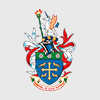
The Bakhita Centre for Research on Slavery, Exploitation and Abuse at St Mary’s University, Twickenham attended the second Race Equality, Diversity and Inclusion Conference on 15th July which was hosted by BME Anti-Slavery Network (BASNET) and the Human Trafficking Foundation.
The conference marked the launch of the BASNET publication Promoting Racial Equality, Diversity and Inclusion: An Action Plan for the UK Modern Slavery and Human Trafficking Sector and discussed how best to implement the Action Plan to meet the needs of victims and survivors from different ethnic backgrounds and make the charities more representative of the range of survivors they aim to support.
The event was chaired by Baroness Lola Young of Hornsey OBE and featured a range of speakers including Independent Anti-Slavery Commissioner Dame Sara Thornton, Debbie Arivo OBE Founder and Chief Executive of AFRUCA – Safeguarding Children, Dr Liz Such Sheffield University, Neena Samota St Mary's University, Prof Alex Balch Modern Slavery PEC, Pam Bowen CPS and Mathew Sowemimo The Salvation Army.
Speaking of the launch, Programme Director of MA Human Trafficking, Migration and Organised Crime at St Mary’s, Neena Samota said “More than a year ago BASNET initiated a conversation about mainstreaming Equality, Diversity and Inclusion (EDI) into all aspects of work within the Modern Slavery and Human Trafficking (MSHT) sector.
As a member of BASNET, I welcome the Action Plan on Behalf of the Bakhita Centre. It offers numerous opportunities and is important for three reasons. Firstly, for all stakeholders, it sets out a much-needed strategic direction on EDI that will consolidate improved outcomes in knowledge and practice.
Second, for the charitable sector, it exerts positive influence by promoting a more equal, diverse and representative sector which addresses unmet needs of specific groups and communities.
Finally, for the academic and research community, it will bring tangible benefits by expanding alternative voices of victims and survivors, developing narratives and new methodologies that contribute to existing knowledge formulation, research and policymaking.
I hope this Action Plan will encourage, motivate and inspire all stakeholders in the MSHT sector to help lead and mainstream EDI in their respective areas of work”.
The full action plan is available online.
